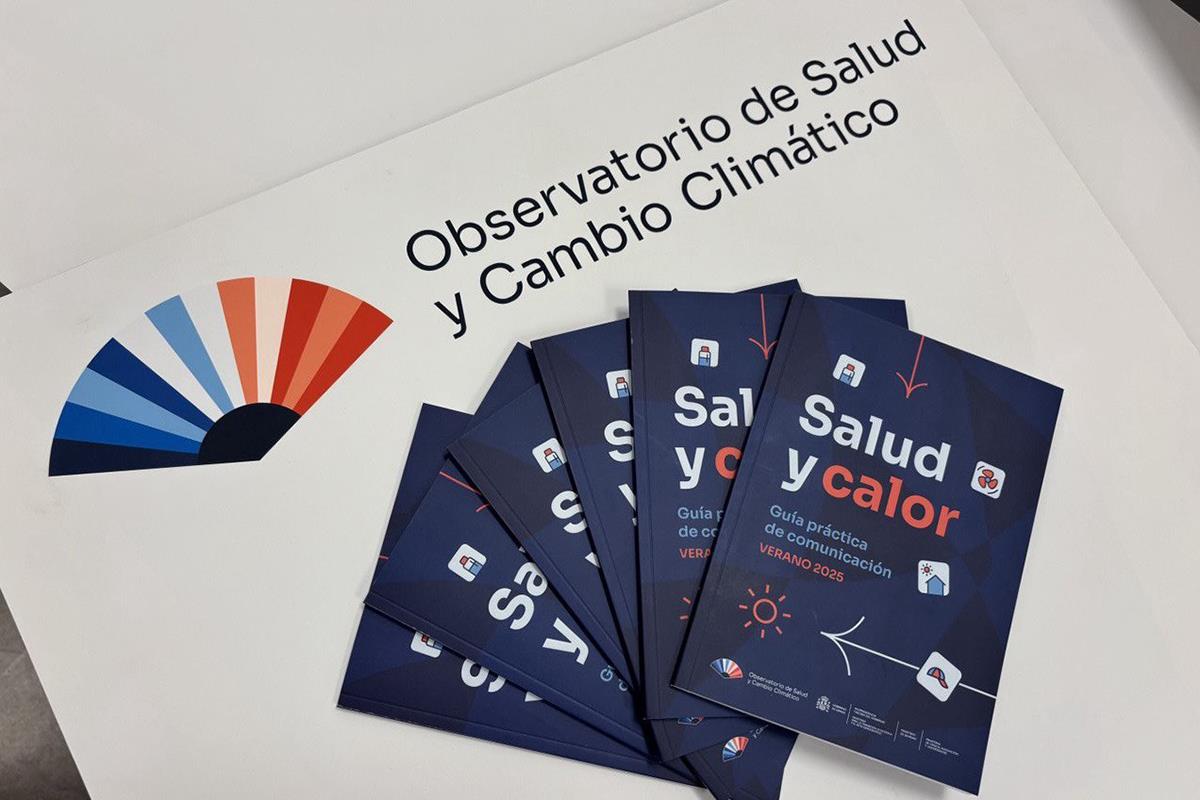Inter-ministerial collaboration
Health and Climate Change Observatory launches key guide to communicate extreme heat risks and protect public health
News - 2025.6.23
 Practical guide to communication. Health and warmth. Summer 2025.
Practical guide to communication. Health and warmth. Summer 2025.
The Government of Spain's Health and Climate Change Observatory (OSCC) has presented the 'Practical guide to communication. Health and warmth. Summer 2025', a key document to improve public communication on the health effects of extreme heat and to promote self-protective behaviour in the face of climate change.
In a context of increasingly long and hot summers, this guide provides practical tools and suggests recommendations based on scientific evidence so that journalists, institutional communicators, health staff and public officials can convey more effective messages to the public about extreme heat and its serious consequences for public health. According to data collected in the guide itself, hospital admissions increase by up to 10% during episodes of high temperatures, especially affecting the elderly, people with chronic diseases, and vulnerable groups.
The guide provides evidence-based tools to convey clear, useful and consistent messages that contribute to preventing health impacts, fostering a more prepared and resilient society in the face of extreme heat.
The document outlines strategies to promote individual and collective adaptation by means of clear, credible and tailored communication to different audiences. It stresses the importance of:
- Framing messages in terms of high risk and high efficacy, promoting simple and effective behaviours such as frequent hydration and avoiding exposure during peak heat hours.
- Tailoring messages to different vulnerability profiles, considering social, economic and territorial factors.
- Choosing tone and visual resources appropriately, avoiding images that reinforce the idea of risk-free enjoyment.
- Using reliable sources such as health workers, meteorologists and scientists to increase the credibility of messages.
- Relying on alerts from the Meteosalud system, which is specially designed to assess heat risk based on health and not just on weather data.
Meteosalud warning system
Meteosalud is the official system of heat-related health risk warnings aimed at informing the public about the risk to health posed by high temperatures, especially in situations where the heat reaches dangerous levels for one or more consecutive days. Unlike AEMET's adverse weather warnings - which have a more general, multi-sectoral approach - Meteosalud warnings are specifically designed to warn about health risks.
The guide for health and heat communication sets out and explains the usefulness of this system, underlining that risk thresholds are established on the basis of statistical analyses relating temperature and mortality by climatic zones. Every morning, Meteosalud publishes an updated map with the heat risk levels forecast for the day and the following two days, forewarning the population so that they can take effective protective measures. Both AEMET and the Ministry of Health recommend that in health information contexts, Meteosalud should preferably be used as the main reference to warn the population about the risk of extreme heat.
Health and Climate Change Observatory
With the involvement of the Ministry of Ecological Transition and Demographic Challenge, the Ministry of Health and Science, and the Ministry of Innovation and Universities, the OSCC stands out for its interdisciplinary composition. It has representatives from the Directorate General for Public Health; the Spanish Office for Climate Change; the autonomous body Instituto de Salud Carlos III; the State Meteorology Agency; the Spanish Agency for Food Safety and Nutrition; the Directorate General for Civil Protection and Emergencies; the State Agency Consejo Superior de Investigaciones Científicas; the Health Alerts and the Emergency Coordination Centre (CCAES), and the Centro de Investigaciones Energéticas, Medioambientales y Tecnológicas (CIEMAT).
The document is part of the observatory's work to integrate health into climate action, and represents a further step towards more effective, empathetic and science-based public communication to strengthen resilience in the face of increased heatwaves that are already affecting the whole population, especially the elderly, chronically ill and socially vulnerable.
Non official translation




